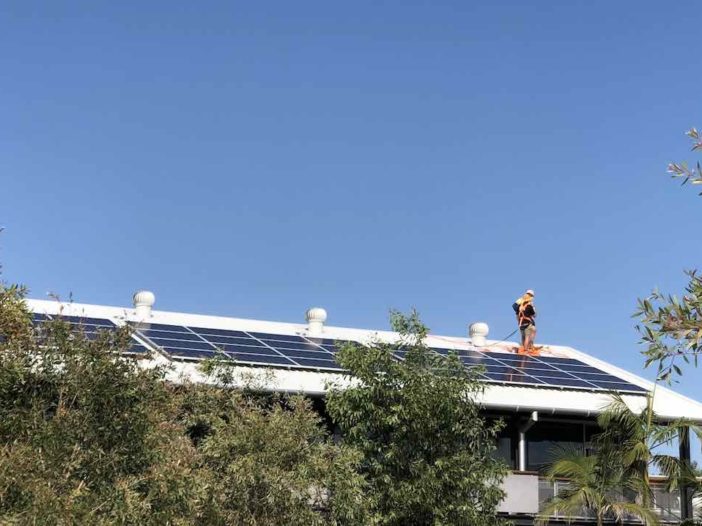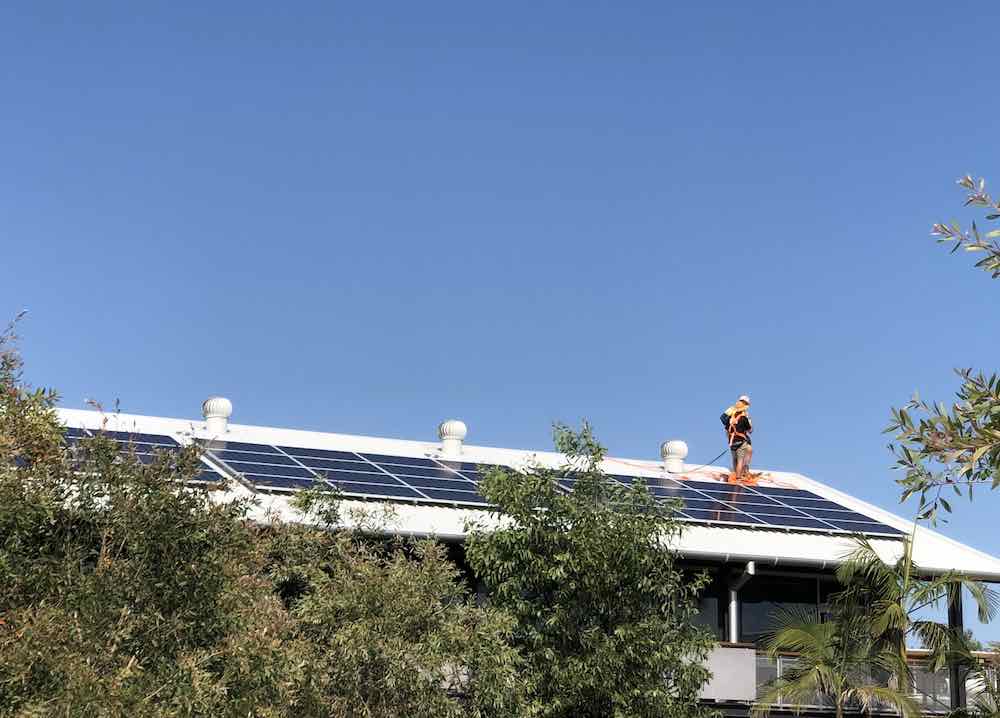
New South Wales solar households can expect to see an almost doubling of some feed-in tariffs offered by retailers in the state, after the pricing regulator raised its guidance for rooftop solar exports to between 6.2-10.4c/kWh.
The NSW Independent Pricing and Regulatory Tribunal, or IPART, said late last week that it had set the higher benchmark for the 2022-23 solar FiT – up from between 4.6-5.5c/kWh in 2021-22 – due to the fossil fuel-driven jump in wholesale power prices.
“In 2022-23 we are expecting higher wholesale electricity prices, driven by higher coal and gas prices, and planned and unplanned plant outages,” said IPART member Sandra Gamble in a statement last Friday.
The comments seem somewhat understated this week, considering NSW on Monday became the second state to have a price cap of $300/MWh imposed by the Australian Energy Market Operator after the average price over the previous seven days averaged more than $675/MWh.
As RenewEconomy has reported, most of Australia’s National Electricity Market states are currently in the grip of an increasingly out of control energy crisis, but NSW and Queensland – the two most coal dependent states – have been hardest hit by soaring prices and threats to supply.
NSW is suffering through the current winter cold snap with multiple outages at its coal generators – with units down at Bayswater and Liddell and with the biggest coal unit Eraring running at reduced capacity because it can’t get enough coal.
And just as solar feed-in tariffs have followed wholesale prices down in recent years – including last year, when IPART slashed the benchmark FiT by roughly one-quarter – they are now following them up.
The key difference is that while it has been the increased amount of cheap renewable generation coming onto Australian grids that has driven down wholesale power prices in the recent past, it is the existing fossil fuel fleet that is now driving them up.
But solar households aren’t guaranteed a bigger payment for exports they send to the – the feed-in-tariff rates set each year by IPART are not binding to electricity retailers, but rather a recommended benchmark for industry and consumers.
As Gamble notes in the statement on Friday, many electricity retailers set their solar feed-in-tariffs in line with the benchmark issued by IPART, while some offer a premium above the benchmark amount in an effort to attract customers – sometimes with catch.
“Customers should consider all aspects of a retailer’s offer including usage and fixed charges. The offer with the highest feed-in tariff may not be the best deal overall,” Gamble advises.
IPART also sets different time-of-export benchmarks, depending on when rooftop solar exports are most – or least – valuable to the grid.
This year the top rate comes in at around 27c/kWh for between 6-7pm – a time period the regulator itself acknowledges sees less than 0.1% of exports.
But it hopes that as home batteries become more widespread, customers will gain greater control over when they can export power to the grid and can opt to cash in on offers incentivising exports at peak times.
Until that time, IPART says that the best way for solar households to maximise the value of their rooftop solar system remains to self consume – particularly during the middle of the day and particularly now, while grid prices are so volatile.
“Solar customers can power their heaters, air conditions and pool pumps with their solar panels if they time it right,” Gamble says.
IPART’s decision to increase the benchmark solar FiT in NSW follows the decision by Queensland counterpart, the QCA, to raise the feed-in tariff for regional customers on the Ergon and Essential energy networks by 41 per cent.
The Queensland Competition Authority published its determination for 2022-23 at the start of the month, setting the rate at 9.3c/kWh, up from 6.5c/kWh in 2021-22 – a change it says will save about 150,000 customers up to $200 a year on their soon to be inflated power costs.
This week, Queensland energy minister Mick de Brenni was compelled to deny allegations from a member of the state opposition – published in the mainstream media (behind a pay wall) – that the Labor government was planning to introduce a “solar tax.”
“There is no change to solar feed in tariffs in Queensland,” de Brenni said in a short statement issued on Wednesday.
“The Opposition Leader should apologise for scaremongering at a time when Queenslanders should be encouraged to install rooftop solar,” the minister added.
Solar lobby group Solar Citizens also weighed in over the allegations, saying it saw “no indication” the Palaszcuk government was considering implementing a “sun tax” – which is one name for the charge networks can feasibly now seek from solar owners for sending energy to the grid at times of oversupply.
“Sky-high coal and gas prices alongside rolling breakdowns at fossil fuel power stations are causing Australia’s energy crisis. The only price relief right now is coming from rooftop solar,” said Solar Citizens deputy director, Stephanie Gray.
“We encourage the Queensland government to implement programs to help renters and people living in social housing access cheap solar energy so that everyone can save on their power bills.”

Sophie is editor of One Step Off The Grid and deputy editor of its sister site, Renew Economy. Sophie has been writing about clean energy for more than a decade.



